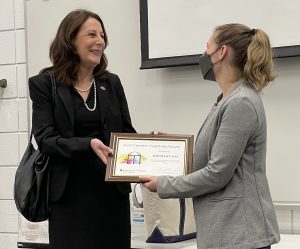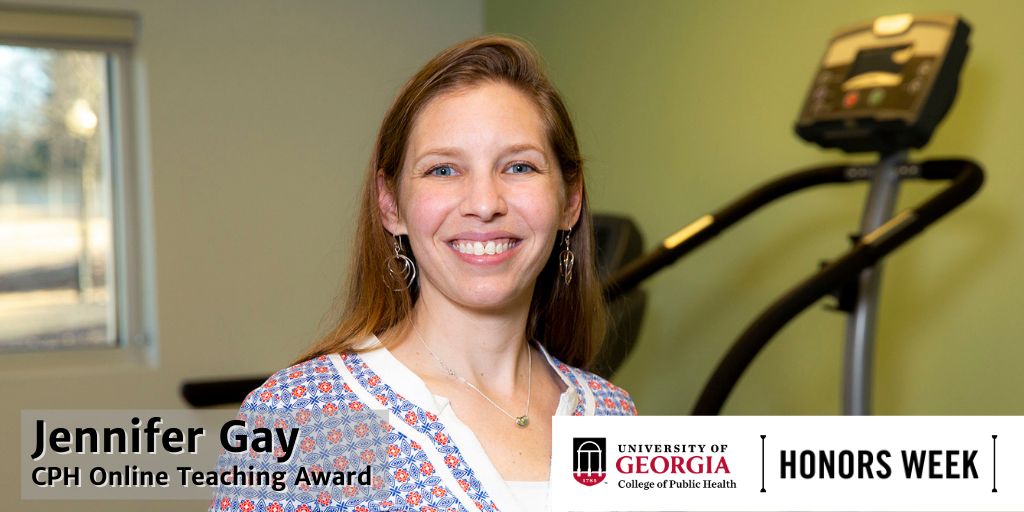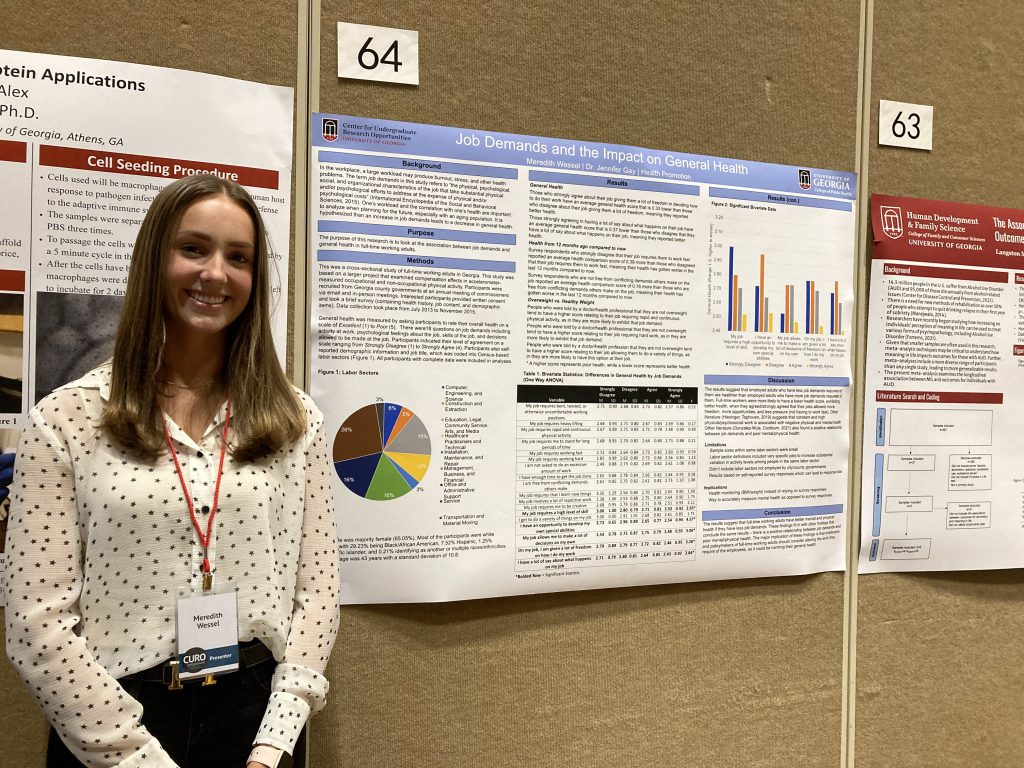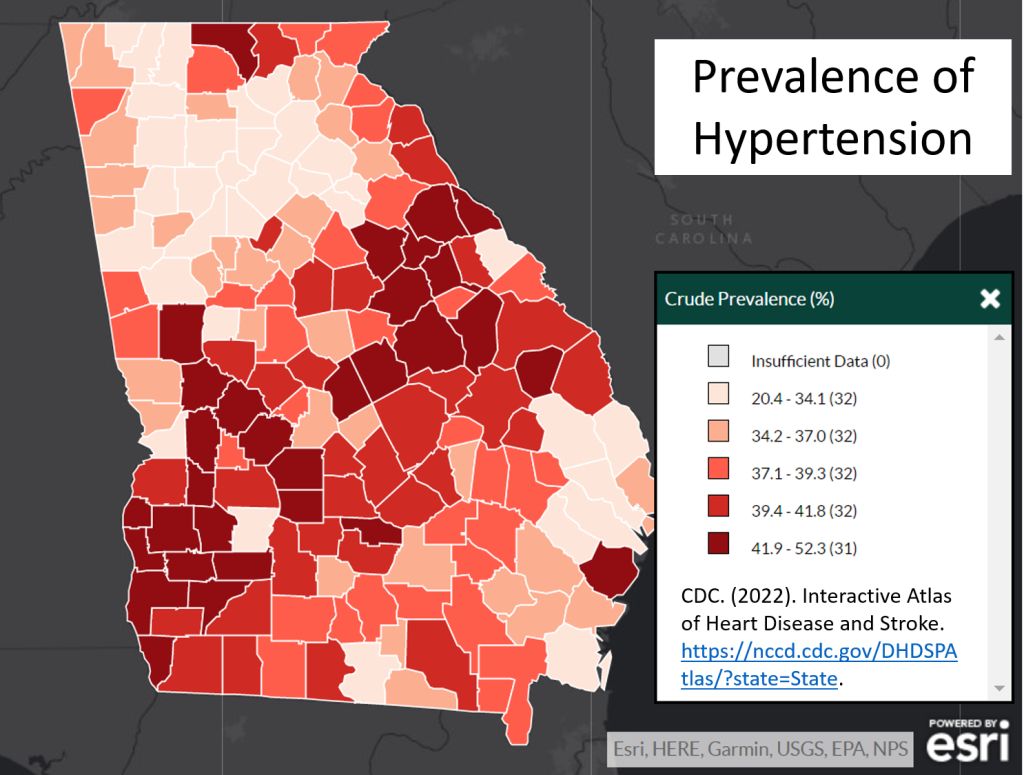Some great guidance from our partners at UGA Marine Extension and Georgia Sea Grant!
Check out this former PACE Lab member in the news! Congrats Chantal!
Find the full story here!
Dr. Jennifer Gay Receives Two Teaching Awards during UGA’s Honors Week

Congratulations to Dr. Jennifer Gay, PACE Lab Director, for earning the University of Georgia Creative Teaching Award and the College of Public Health inaugural Online Teaching Award! From College of Public Health Dean, Dr. Marsha Davis on the Creative Teaching Award below.
One concrete example of Dr. Gay’s teaching innovation is her use of the specification grading approach. In this grading scheme, all the assignments in the class are graded as “Satisfactory/Competent” or “Needs More Work”. Assignments in the latter category may be revised based on the extensive feedback that Dr. Gay provides. This means that there are no points, and each assignment carries the same weight. It also means that students are encouraged to gain mastery of the concepts through revisions. The students know exactly how many Satisfactory assignments they need to complete to get the final grade they want. This novel approach gives students more control as they decide how many assignments to submit or revise. It also encourages students to take responsibility for their learning and shifts the focus from points to meeting learning objectives.
This grading scheme and the assignments in her classes are based in principles of inclusion, autonomy, and control following the Association of College and University Educators (ACUE) Inclusive and Equitable Teaching Curriculum Crosswalk. Her general teaching style of engagement and inclusion follows these same principals. She meets students where they are, which is particularly important in a degree program where there is a wide range of background knowledge in public health. She does this by engaging with her students, in both her in-person and online courses. She makes materials relatable to students, posting announcements with content-related examples from recent news stories, podcasts, or videos. For example, each course eLC homepage has a widget dedicated to recent, humorous news from science or public health outlets. This keeps the material engaging, relevant, and timely. She also uses the eLC Awards feature, providing students with encouragement and awards throughout the semester.
Dr. Gay is the first faculty member in the College of Public Health to earn the Creative Teaching Award!
But perhaps the feedback from students themselves speaks better than anything we as colleagues can detail. Dr. Gay conducts her own end-of-term evaluations to assess the grading scheme and solicit feedback for improvement. Students reported that the way she structures her class reduces their stress (89%), provides more flexibility, (100%), and gives them more control compared to other courses (100%). Her qualitative feedback expands on this positive feedback. Below are just a few of her evaluation comments from Fall 2022:
- I felt that Dr. Gay focused on skill acquisition rather than simple knowledge building, and this is something I quite enjoyed and found useful at the graduate level. All the assignments we did felt like they had a purpose, and they were driven based on important course objectives. I enjoyed that we walked through every step of the research process in a way that encouraged questions and promoted learning from mistakes (as is done in real life).
- I thoroughly enjoyed Dr. Gay’s teaching style. She made me feel like she actually cared about me, my work, and whether or not I understood the material. She also emphasized the importance of diversity, which made me (a student of color) feel seen.
- I felt as though the grading system in this class was the best I have been exposed to. By allowing revisions, Dr. Gay provided us with an opportunity to revisit previous work and improve our grade instead of requiring mastery of the concepts at only one point in time or for one assignment. I felt as though I learned a lot more from the revision process, as Dr. Gay was consistently a massive help whenever I had questions and was happy to point me in the right direction if I was lost. I learned the most in this class, and I believe that is due to Dr. Gay’s grading structure incentivizing revisiting past concepts.
- She showed me what a caring and effective professor looks like!

Dr. Gay also was recognized for her excellence in online teaching, earning the inaugural CPH Online Teaching Award. Here’s what Dean Davis said about Dr. Gay’s online teaching…
Her students agree that her innovation in teaching online content is what makes online learning exciting. “Unlike many of my other professors, Dr. Gay included weekly video presentations over the week’s topic along with supplemental videos, readings, and resources.” Jennie is available to her students, which is difficult in an online environment. “I have gained a better understanding in research methods and design and have also developed a strong interest in community nutrition interventions. While online learning has been difficult throughout the pandemic, Dr. Gay’s courses made online learning both effective and enjoyable.” Another, non-traditional student, wrote, “I can credit Professor Gay with simplifying the complex and igniting a desire to learn and know more about what the number(s) behind the analysis means.”
Congratulations Dr. Gay on being an awesome teacher!
It’s National Park Week! Day 1 is ParkRx Day!

It’s National Park Week in the US and the PACE Lab is celebrating all the amazing opportunities for physical activity, rest, rejuvenation, and learning! Did you know that Dr. Gay reviews the ParkRx program in her Public Health Physical Activity and Nutrition Interventions course? Students learn about the many health benefits of being active in nature and the efficacy of park prescription programs. Check out the National Park Service’s website for more information about National Park Week!
PACE Lab member, Meredith Wessel, presents at the Center for Undergraduate Research Opportunities symposium
Meredith Wessel presented her semester-long project on Job Demands and the Impact on General Health. She found that workers who have more control and autonomy at work reported slightly worse general health than workers with less control and autonomy. How interesting! Meredith is an undergraduate honors student in the Health Promotion and Behavior department, and has been a PACE Lab member for almost two years. Congratulations on this achievement!

PACE Lab Alum Chantal LaFlamme Has Paper Published
Congratulations to PACE Lab alum Chantal LaFlamme and Director Dr. Jennifer Gay for having their study, Psychological Aspects of Stair Use: A Systematic Review, published in the current issue of the American Journal of Lifestyle Medicine! This was a collaborative effort with Dr. Patrick O’Connor and one of his students from the UGA Department of Kinesiology. Great work everyone!

It’s Heart Health Month!

February is Heart Health Month, a time when we take stock of our cardiovascular health and risk factors for heart disease. Heart disease is the leading cause of death in the state of Georgia, and ranks 14th in heart disease mortality (yikes!). Within Georgia, rates of high blood pressure are higher in our rural areas, highlighting the need for greater prevention efforts and access to care.
Members of the PACE Lab work toward more people living physically active lifestyles. Engaging in regular physical activity can reduce your risk of heart disease. One of our current projects, the Blue Gym of Georgia, is investigating ways to encourage people to be active outdoors and to improve the environment’s health at the same time.
For more information on American Heart Month, check out the CDC and American Heart Association for great resources on preventing heart disease, including the new American Heart Association campaign, Reclaim Your Rhythm.
